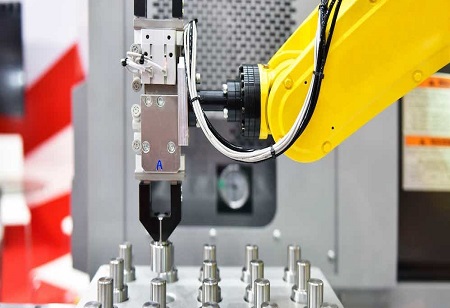
If manufacturers want to stay competitive in today's global market, they should start adopting more environmentally and ethically responsible strategies. For industrial organizations, the significance of environmental, social, and governance (ESG) and sustainability programs has reached a critical mass. According to Manufacturers Alliance, “ESG is a set of frameworks used to assess the impact of a company’s sustainable and ethical practices on its financial performance and operations. It groups specific company actions into three categories to provide a structure to measure and report progress.” Demand for ESG has increased as a result of recent events like the COVID-19 pandemic and the harsher environment. Worldwide, overproduction of CO2 outflows, water shortage, squander the board, a limited petroleum product supply, and serious climate related help interruption are significant issues for organizations. A few of the reasons why ESG is important for the manufacturing industry is as follows:
Rising purchaser & consumer demands
Not only from a sustainability perspective, buyers want more information about ESG goals than ever before. In recent years, the number of businesses requiring suppliers to report significant environmental impacts has significantly increased. Large-scale buyers made 24% more requests for environmental data from their suppliers in 2020 than in 2019. A better understanding of environmental risks and the desire to please discerning customers motivate Nike, Walmart, and Microsoft, among the world's top buyers. According to PWC data, younger customers between the ages of 18 and 38 are nearly twice as likely as customers older than 18 to consider environmental, social, and governance (ESG) concerns when making purchases. Businesses now provide consumers with fundamental product and manufacturing information in tandem with transparency in ESG practices. From here, the demand for ESG data will only increase.
Hefty regulatory fines and government monitoring
It is anticipated that significant regulatory penalties will be imposed on businesses that do not comply with ESG initiatives. The possibility of legislation requiring companies operating in the European Union to conduct due diligence is currently being investigated. For instance, legislation to reduce the use of plastics has been enacted in over 70 nations, and 170 nations have pledged to "significantly reduce" their use of plastics by 2030.
Additionally, the Securities and Exchange Commission announced the establishment of a Climate and ESG Task Force within the Division of Enforcement the previous year with the intention of developing strategies for the proactive discovery of ESG-related misconduct. Additionally, the task force will investigate issues pertaining to investment adviser and fund ESG strategy disclosure and compliance. Manufacturers and other organizations will soon be required to meet sustainability goals in order to avoid severe penalties due to high regulatory fines and the implementation of various ESG initiatives and laws.
Changes in the labor force
The "great resignation" and "grey tsunami" are altering the workforce. The number of retirees will rise as a result of the "gray tsunami," creating a skills shortage that could leave 21 million manufacturing jobs unfilled by 2030. Younger generations place a high value on employment opportunities that place a strong emphasis on environmental, social, and governance (ESG) objectives. In point of fact, when deciding where to work, roughly 76% of millennials consider ESG commitments. By 2030, it is anticipated that Millennials and Generation Z will account for 74% of the full-time workforce in the United States. Standards for a company's operations that help an organization improve and become more accountable for its impact on the environment, social responsibility, and organizational governance are known as environmental, social, and governance.
Manufacturing sectors leading in ESG
Numerous top firms across multiple industrial sectors are well advanced in their ESG efforts, having established objectives and commitments to pursue ESG-conscious best practices and initiatives. However, this article relates to everyone, and not just those in mass production processes. Even the SME/SMB is affected as every manufacturing company is a component of a supply chain. This includes automakers committing to greening their Vehicles and major oil and gas firms reacting to the demand that industry accelerates its adoption of tools and invests in new technology to achieve net zero emissions and positive climate change. As we will see, much of their impetus is due to consumer pressure and investor activism. From an ESG perspective, supply management remains in its infancy. However, with ESG investing finally a mainstream concept, the power of social media has highlighted that a flawed supply chain can cause a company’s reputation to plunge overnight. Such ESG issues lead to investment choices which define near-team large scale business activities. Updating any business process to create finished goods with climate change friendly materials requires companies commit to investing in negative screening their supply chain as much as it does in investing in human rights. The financial returns, and the costs of the skills required, enable all industries to realize positive gains from any such investment. Today, corporations are offering consumers easy-to-understand information about their products and manufacturing processes. The demand for ESG data is only going to rise from here. ESG has become a hot topic and a potentially revolutionary concept for both sectors and societies. ESG is undoubtedly significant. Corporations must contribute to the fight against climate change and the development of more ecologically friendly industrial practices.

